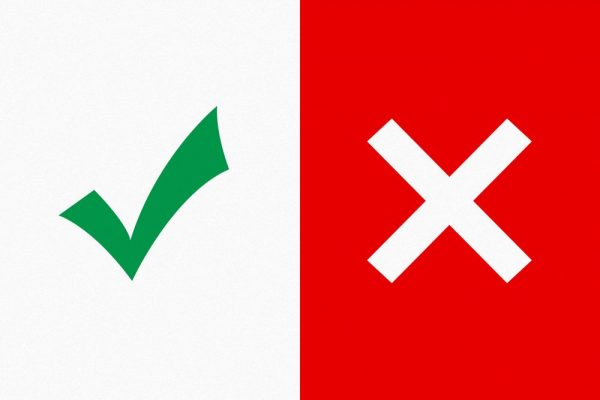As you are learning English, it is compulsory to master the comparative clause. Easy as they may seem, however, there are some irregular cases that hardly anyone knows. When it comes to “Wrong” adjective, is Wronger and More Wrong different at all? Which one is more suitable? Let’s find out by reading further this article!
Definition of “Wronger”
Wronger (noun): One who wrongs someone. One who commits a wrong. (according to yourdictionary.com)
Commonly, comparative/superlative form of a 1-syllabus adjective has the “er/est” ending. As it comes to “Wrong”, the usage of “Wronger/The wrongest” is not in common use. Most of the dictionaries don’t have this word, except for Oxford dictionary which only states “Wronger” as a noun. However, in some certain texts, we come across the “Wronger” word as the comparative form of “wrong”:
Examples:
- If one makes a mistake doing the wrong thing and corrects it, then he/ she becomes “wronger.” (Source: Business Strategies for a Messy World: Tools for Systemic Problem-Solving – V. Barabba, I. Mitroff)
Furthermore, “Wronger” appears in the conversational language
Definition of “More Wrong”
The definition of “More Wrong” does not appear in any dictionaries. However, its usage as a comparative form of “Wrong” is very common in written and spoken language. Here are some examples we come across.
Examples:
- I did wrong, and then I did more wrong, and I did it (Source: The Most Wanted – Jacquelyn Mitchard)
Right usage for “Wronger” and “More Wrong”
It is hard to seek agreement on the correct comparative form of “Wrong”. Personally, I don’t think there are any differences between Wronger and More Wrong. Both words are widely used in informal language as people think the exact usage does not matter much. Many trusted copyeditors, however, tend to use “More Wrong” frequently in oral and written language.
Another popular viewpoint is that “Wrong”, as well as “Right” or “True”, is an absolute adjective, so the usages of Wronger and More Wrong are both inappropriate. Instead, it is advised that we use “Wrong” with strong adverbs like “utterly wrong”, “completely wrong”, “very wrong” to emphasize the meaning. Here are some examples you can see:
Example:
- To think that you are not related to social relationships is an absolutely wrong thought
To summarize, which comparative form of “Wrong” to use depends on your purpose. In informal circumstances, we can use both Wronger and More Wrong. In the formal, academic ones, it is better to use “Wrong” with strong adverbs as suggested above.
How to learn effectively?
English has various grammar structures with irregular cases, but mastering these “obstacles” is not hard at all. Reading is traditional but always effective in studying English. Let’s take a look at this ebook of commonly confusing words in English to learn more. The ebook with 8 pages with detailed, easy explanation and illustration helps you find it interesting to read and learn. It does not take much time to finish reading it. However, you should read it often to remember the lessons longer.
Download eJOY Commonly Confusing Words
Exercises
Let’s take some quizzes to review what we have studied so far, shall we?
Choose “Wronger” or “More Wrong” to fill in the blanks in the sentences below:
- It is better to do the right thing ___ than the wrong things righter
- It is more __ of you when criticizing him like that
- You once told me, the louder humanoids get, the more passionate they get, the ___ they get
- She is much more ___ when thinking that it is not her duty
- It is __ of her father to let her go alone
Summary
Hope that through this article, you can learn something interesting about Wronger and More Wrong. As English has various vocabularies, don’t forget to practice frequently to get a better result. You can check out some suggested helpful articles on distinguishing confusing words here:




















